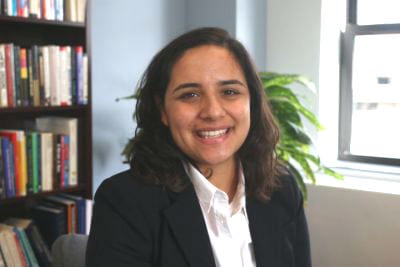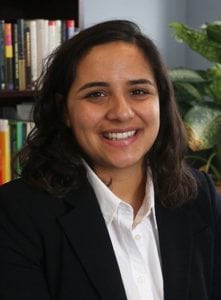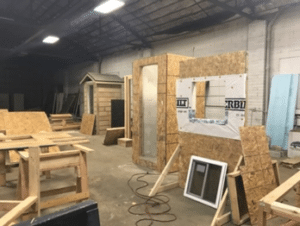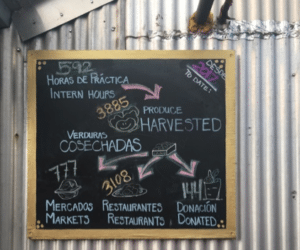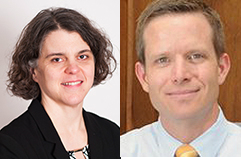This is part two of a three-part blog series on alternative education. Part one and three can be found here.
As a student, I was always drawn to learning experiences that allowed me to explore my interest at the intersection of education and social justice. I gravitated towards experiential learning opportunities that rooted my studies in the communities I was living in. These opportunities integrated academic knowledge with work experiences, encouraged development of non-academic skills like leadership, critical thinking, and time-management, allowed for career exploration, and prepared me for my current position at AYPF.
On a recent study tour to Denver, Colorado, we observed the innovative connection between academic learning and career and technical education at the three alternative schools we visited. The study tour came at a critical time—states are submitting, revising, and drafting their Every Student Succeeds Act (ESSA) state plans which has prompted discussion about how states can leverage the flexibility in the ESSA to create robust accountability structures that assess the college and career readiness and success of all students, including those educated in alternative settings.
During these visits, we noticed that rather than viewing workforce training and experience as separate or secondary to academic instruction, they offered an integrated curriculum that prioritized both while maintaining a clear focus on preparing students for success after high school.
Alternative Education Examples
One of the schools we visited was Colorado High School Charter’s Globeville, Elyria, and Swansea (“GES”) campus at Colorado Construction Institute (CCI). The location and partnerships of CHSC facilitate many opportunities for experiential learning and for students to develop employer-desired skills. CCI is a non-profit training organization that provides both pre-apprentice and apprenticeship programs for youth and unemployed/underemployed adults, as well as educational programing to create pathways for students in the construction industry. Since the GES campus is at CCI, students can take classes through concurrent enrollment while also working a part-time job or participating in an apprenticeship program. In addition to their core academic courses, students can participate in career-relevant classes like wood technology, welding, and manufacturing. During our visit to the school, one student explained that through his classes he obtained the skills necessary to build almost every aspect of a house.
HSC also works in partnership with GrowHaus, an indoor farm, food market, and education center. Growhaus plays a critical role in providing healthy food options to CHSC students and the surrounding community. Through both coursework and work opportunities, students are exposed to the fields of hydroponics, aquaponics, horticulture resource management, and food production and distribution.
The Globeville, Elyria, and Swansea neighborhoods are geographically isolated from Denver by highways and rail lines, which has resulted in a lack of education options for students in the area and created a food desert. These challenges have provided CHSC students the ability to engage in project-based learning while also positively impacting their community. A representative at CCI explained that students actively go out into the community and identify where there is need. For example, GES students recently built a ramp for a community member so her home was more accessible to her needs.
Additionally, all three schools we visited allow for concurrent enrollment at local colleges. This provides students the ability to work towards college credits and/or technical certifications while they are still in high school, at minimal to no cost. These partnerships take advantage of the local resources available and provide innovative and efficient ways for students to gain postsecondary credentials and credits.
District and State-Level Examples
Panel discussions with local leaders across Colorado also exemplified how districts and the state are taking work-based learning models to scale. St. Vrain Valley School District is actively creating pathways to postsecondary and workforce success by providing multiple options for comprehensive pathways for all students. The district’s Innovation Center gives students the opportunity to participate in hands-on projects developing apps, websites, robots, and other products for community-based clients, while also collaborating with professionals in STEM fields. Collaboration between industry partners and the district is mutually beneficial, as professionals provide their expertise and mentorship and students aid in developing and testing new products.
Efforts to unite workforce training with education are also occurring at the state level. CareerWise Colorado, a youth apprenticeship system, is launching its pilot program this summer with students participating in three-year apprenticeships that begin their junior year in high school. Apprenticeships are available in occupations in business operations, financial services, advanced manufacturing, and technology and result in a living wage job, professional credentials, three years of work experience, college credits, and the creation of a professional network.
Final Thoughts
These schools, districts, and systems challenge conventional approaches to education and emphasize the value of workforce training alongside academic preparation. This emphasis is reflected in Colorado’s statewide accountability system for both traditional public schools and alternative education campuses (AECs), which both include a postsecondary and workforce readiness performance indicator that could include measures such as workforce readiness, successful transition, or post-completion success. While having an indicator is a great first step, states should also be thoughtful in the measures and metrics they use—both required and optional—to measure these experiences. States should consider how they can create accountability systems for all schools that value, encourage, and measure integrated educational and workforce experiences.
To learn more about our visit to Denver and the context of alternative education in Colorado, please consult our Study Tour Brief, found here.


